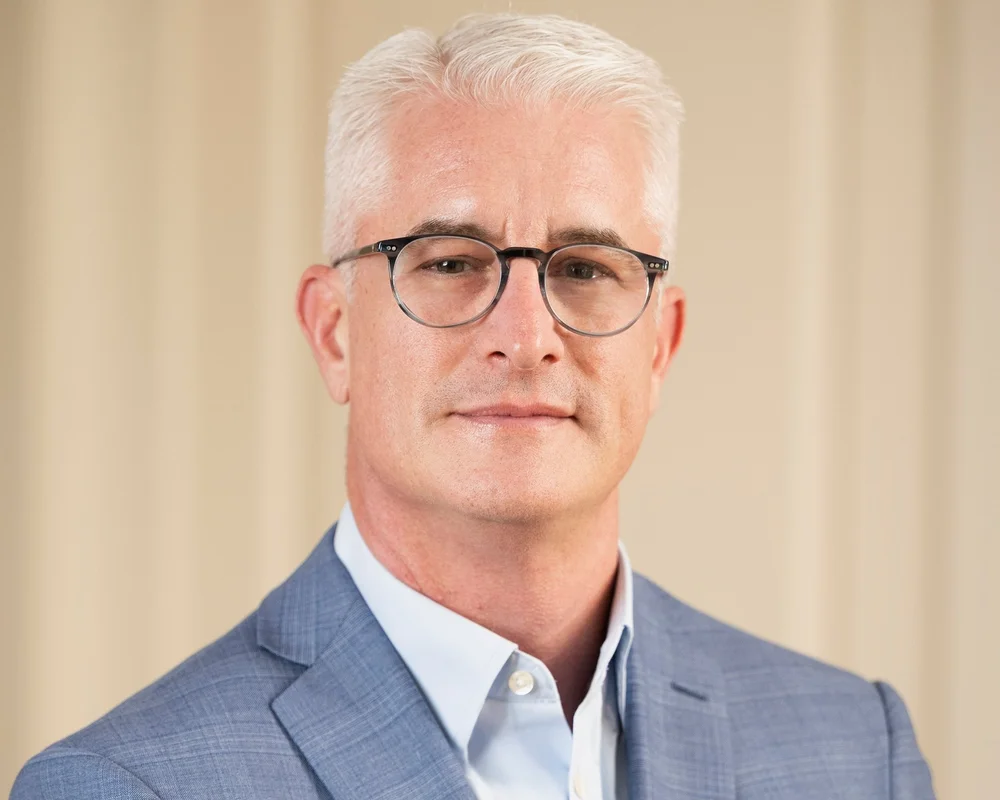Lest anyone believe that Comcast and Level 3 are close to resolving their differences, Level 3 did in fact have a very different view on Comcast’s trial offer that was discussed in a blog post on Comcast’s corporate blog late last week. In a letter filed with the FCC, President and COO Jeff Storey said that Comcast broke an NDA in saying what it did, and then took issue with pretty much everything Comcast said. I’d summarize in more detail, but why not go directly to the source. Here’s the text of the letter, which if you are particularly gifted at using archaic search tehnologies you might be able to find on the FCC website:
Mr. Neil Smit
President
Comcast CableNeil:
The purpose of this letter is to correct various misstatements contained in John Schanz’ email to me yesterday, as well as to address violations by Comcast of our agreement to refrain from disclosing the specifics of our settlement discussions.
Prior to engaging in efforts to resolve our differences, John Schanz and I had a discussion – at John’s request – to clarify that the discussions between us would be subject to our Nondisclosure Agreement, and that neither party would publicly disclose the offers, counteroffers and responses of the other party in these discussions. While Level 3 has insisted that any final resolution of our disagreement must be public and transparent, we agreed to John’s request for confidential discussions in order to promote candor and openness. During our meeting on December 3, you and I acknowledged the confidential nature of our discussions and agreed not to disclose the discussions. The confidentiality of our discussions was further confirmed by the fact that both parties acknowledged confidentiality in the “Proposed New Interconnection Framework” jointly prepared by our technical teams in Chicago during the meeting which ended on December 16, 2010. Last night and today, in direct violation of our Nondisclosure Agreement, Comcast disclosed the details of our discussions to the FCC, and publicly disclosed those discussions in a blog post written by John Schanz. This breach of our agreement is exacerbated by the fact that Comcast’s portrayal of our discussions is factually incorrect.
By now I’m sure you’ve seen both our letter to the FCC and DOJ and the associated email from Jim to you. As Jim makes clear, the fundamental question is whether or not Comcast can use its dominant position in consumer high speed Internet access service in the markets it serves to extract a payment from Level 3 for delivering to Comcast content requested by your customers. If, as we maintain is the case, Comcast does have a dominant position with respect to access to its subscribers, then a “trial” will prove nothing.
Although I have not previously rejected conducting a trial contrary to what John asserted, Comcast’s actions make it clear that the “trial” offer was not made in good faith and was designed to incorrectly imply that Level 3 is acting unreasonably, either by refusing to engage in a “trial” or by continually moving the “goalpost,” I must correct the record.
John’s email states that the “trial” “…would be an excellent next step to gain all the experience and understanding of this major paradigm shift in direct Internet connections.” Your team proposed to mutually provision one or two “trial” ports. John states that the purpose is to “invest in the solution while getting more data about traffic, routing, and the overall economics.”
In his email, John seems to contend that interconnection between our networks in locations other than those currently employed requires new technical concepts and thus will require a “trial” to determine the feasibility of this “paradigm shift.” This statement is unreasonable on its face since:
- we both have designed, built and have frequently upgraded large, national Internet backbones
- we both have substantial experience operating these Internet backbones
- we both offer commercially available services enabled by these backbones
- we both interconnect with multiple other backbone networks
- we both have a particularly deep understanding of each other’s networks since your backbone rides on Level 3’s U.S. fiber infrastructure
- there are currently 32 interconnection links between our networks already in operation and exchanging traffic between our networks
- we both have sufficient understanding of our respective networks, operating and capital costs to enable consolidation of actual results into our publicly reported financial results, including a certification of accuracy by corporate officers
Given these facts, we believe that Comcast’s proposed “trial” will not result in any meaningful improvement in either company’s understanding of our respective “traffic, routing, and the overall economics.” Instead, we believe that the proposal was an unfair attempt to build a record which Comcast could and did subsequently use to mislead the FCC, DOJ and the public.
John’s email further states that we shifted the “goalposts” on Comcast, apparently by first requesting a “no recurring cost” solution and then subsequently requesting a “zero cost” solution. This grossly mischaracterizes our discussions and Level 3’s position. As Jim noted in his email to you yesterday, there is no “zero cost” solution for either Level 3 or Comcast. The proposals that we discussed with Comcast, while they would not require a payment from Level 3 to Comcast, involve Level 3 incurring significant “cost” to reach Comcast’s desired interconnection points.
We have been clear on the payment point from the beginning. In numerous emails and phone calls between John and me and between Jim Crowe and you, we have been clear that we are seeking an interconnection architecture that will not require payment from Level 3 to Comcast. In fact, in Jim’s letter to you on December 14, he made our position perfectly clear: “We keep asking you to tell us the locations where we can interconnect with you with no payment from us and thus no revenue to you. If you choose to tell us those locations, we can make progress. If not, no amount of engineering work can resolve our differences.”
Our position on this point is further confirmed by the “Proposed New Interconnection Framework” document that our teams created over the past few days. The following is an excerpt from that document:
- Level 3 would pay a non-recurring interconnection fee of X per 10 Gbps port for incremental regional interconnect ports
- Comcast believes that “X” per 10Gbps port should be $YYY
- Level 3 believes that “X” should be $0.
- Level 3 also believes that no recurring charges should apply to the interconnection fee (with possible exception of power)
As the excerpt makes clear, your contention that we shifted the “goalposts” is incorrect.
As a result, I expect that you will want to have Comcast representatives promptly correct your public and FCC statements in a manner that is at least as public as the manner in which they were initially made.
We remain willing to discuss resolution of our disagreement and we are willing to entertain and discuss any constructive offers you might have.
Sincerely,
Jeff Storey
President and Chief Operating Officer
Level 3 Communications, Inc.
This link should get you there if you want to read the scanned-image-pdf. Anyone want to lay odds that Comcast will correct their earlier statements? Just kidding… Common ground appears to be underwater still. Oh, and Level 3 really, really needs a corporate blog. I mean, if Comcast has one, just how far behind the times can you be? 🙂
If you haven't already, please take our Reader Survey! Just 3 questions to help us better understand who is reading Telecom Ramblings so we can serve you better!
Categories: Cable · Content Distribution · Internet Backbones · Internet Traffic






Nice find Rob. The violation of the NDA clearly presents financial exposure on Comcast’s behalf. I wouldn’t expect (3) to be afraid to use it, and actually feel they should based upon Jeff’s “STOREY.”
Actually, (3) should kick up the corporate blogging to something more bandwidth intense, like “video presence” by their expert corporate “blogger” or “speaker.”
I notice Peter Schiff uses this methodology very effectively on a weekly basis in order to communicate to his targeted audience.
what makes this all the more interesting is how similar these arguments are to the issues relating to dail up economics. in that case LVLT “won” and LECs were forced to pay Lpig.
this all looks familiar doesnt it jeremy?
it sure does. access charges by a different name are coming back! i think what we might see are multi-tier services from google and the like. you get “free” services with goog such that you can use it with your standard monthly broadband payment but if you want the stuff that goog (LVLT) have to pay access charges for, then you need to pay goog a monthly fee. comcast and vz need something to pay those legacy costs!!!!!
You guys might want to check out Paul Kouroupas piece on the GLBC blogs, he touches on peering and the return of access charges as well.
http://blogs.globalcrossing.com/?q=content/internet-without-peering-just-phone-network
Jeremy Drake is draining me. I don’t know WTH he is saying. I see no resemblance to dial up. What I see clearly is (3)’s attempt to identify cost burdens and seek the lowest possible solutions for minimizing internet costs to end users long term. This will further strengthen the value of an open internet. imo
We don’t want a subsidy from Comcast, but we also don’t want to pay a subsidy to Comcast. What we do want is for the future of the Internet to be filled with competitive content, with innovation, and with choice for consumers to see and hear what they want.
rob;
thx for the link. a very next gen perspective. yes, we are heading down the road of access charges by another name. someone has to pay the cost to buildout and support enduser needs. because the cable/telco still own the last mile they get to be heard first. i would add it appears the last mile providers want it both ways, they are willing to sell tiered service to the end users and then also inforce peering – i think of them as access charges – on the other side. that’s greedy. i did like the following comment from that blog, i think it’s spot on….
“Now move to the Internet. First, the local/long distance distinction is non-existent. So, if CLEC has traffic that it wants to get to Comcast, CLEC can either pay Comcast directly for transit services or it can pay Global Crossing for transit services. Either way the traffic will reach Comcast’s customers. Importantly, CLEC has a choice! It is this choice that ensures that transit fees remain reasonable and negates the need for regulation. If, however, Comcast were to tell Global Crossing that it will only accept a certain amount of traffic from Global Crossing, or that Global Crossing can only send as much traffic to Comcast as Comcast sends to Global Crossing, then CLEC can only send some of its traffic to Global Crossing. The more carriers that Comcast enforces this policy with, the less traffic CLEC can route in this manner until they have no choice but to route to Comcast directly and we have effectively duplicated the access charge model of the telephony world on the Internet. Now, CLEC has no choice but to pay Comcast’s access charges and there are no limits on what Comcast can charge for access because there is no regulation of transit fees. Is that really the Internet we want? Do we want to have to regulate the Internet the same way we regulate the phone network? Or do we want to preserve the competitive dynamic that exists on the Internet today?”
jeremy, i too thought that paragraph was well written and reinforced the critical nature of this debate.
In its simplest form, we are talking about companies with dominant positions in the last mile, and their owners including influential politicians they effect, who expect to “control” the images and messages we receive for their own benefit with no regard to factual economics or corresponding “expenses.”
If they have their way, the internet being representative of a “Great Liberator” across the globe, will be denigrated to the traditional media distribution outlets which are counter to the best interests-dumb em down- of any people who reside on planet earth.
At the crux of the LVLT/Comcast dispute, is establishing the proper economic scheme related to internet “delivery costs,” so that, the internet will remain robust and efficient moving ahead.
Contrary to all the Republican banter and all of the political rhetoric from all sides including ignorant news commentaries by “experts” I keep hearing on the boob tube, the FCC took the right step yesterday, and LVLT is fighting the right fight for keeping the internet open to innovation, creativity, entertainment, education and more!
Hastings gets FCC attention:
http://tech.fortune.cnn.com/2012/04/17/hastings-facebook-rant-draws-fccs-attention/?iid=SF_F_LN